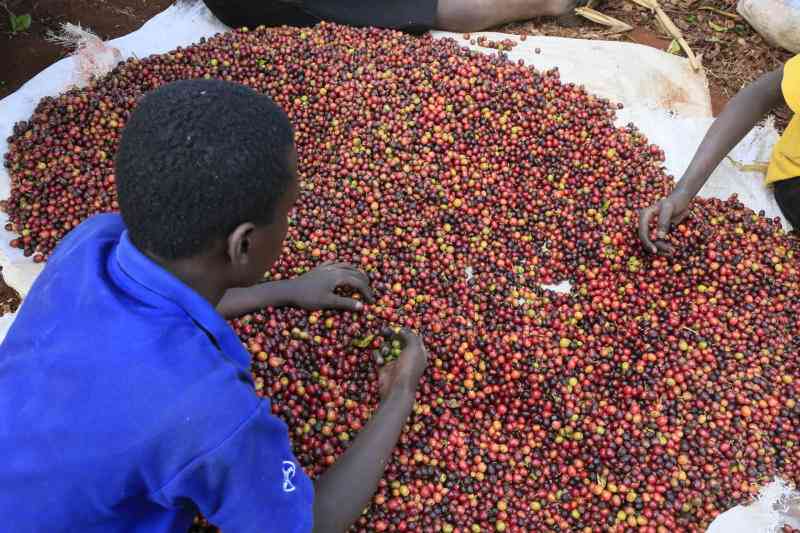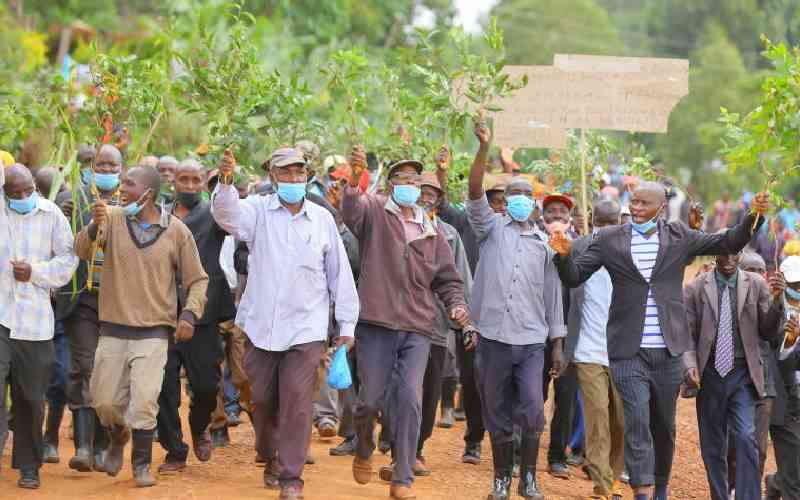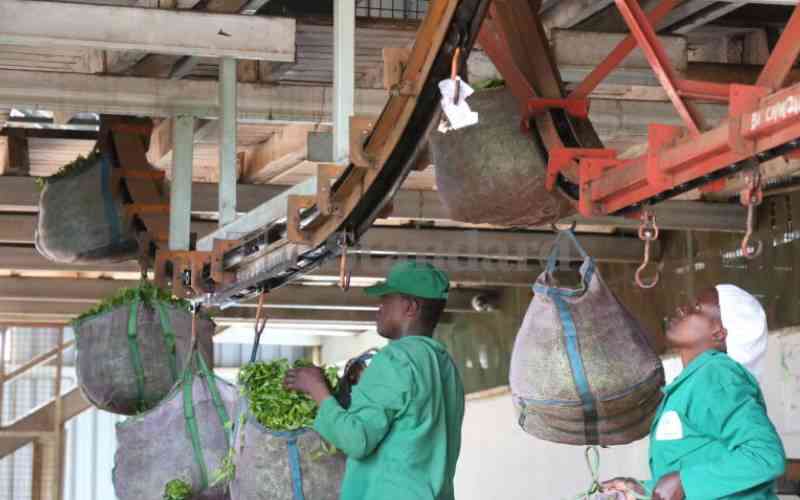When Samuel Rono cultivated his 14-acre piece of land in Nandi County and purchased farm inputs for the maize planting season he had high hopes of a bumper harvest.
He religiously adhered to all the necessary steps for growing maize and all was well but unfortunately, the entire crop turned yellow and stalks started wilting.
“I planted 14 acres of maize using certified seeds and fertiliser, but as I was waiting for the crop to flower it began to wither and I lost my investment to the Maize Lethal Necrosis Diseases (MNLD) with the only option being to clear my farm where I have planted beans instead,” said Mr Rono from Tinderet Constituency.
He lost all his investment and there are no hopes for compensation with the relevant authorities issuing lip service with no significant action to address his plight.
“Whenever there is an outbreak of livestock disease, the government intervenes promptly by availing vaccination but nothing has been done to contain MLND,” he said.
Rono’s sentiments have been echoed by North Rift governors Jackson Mandago (Uasin Gishu), Alex Tolgos (Elgeyo Marakwet), Cleophas Lagat (Nandi) and Patrick Khaemba a resident of Nandi County.
These regions were worst hit with the viral maize infection with more than 7,000 hectares of land affected across the counties that contribute significantly to the country’s food basket.
The governors have faulted the national government over laxity to contain the disease, which they believe will reduce food production by 50 per cent come next year.
The county bosses said the government should decentralise Kenya Agricultural Research Institute (laboratories) to the most affected areas since they currently rely on Nairobi, which cannot efficiently address the farmers’ challenges in time.
“We are considering asking local farmers to boycott planting maize next year as they are not getting value for their hard work, a remedy for this disease should have been achieved by now if the country is serious about food security,” said Mr Mandago.
Mr Tolgos has threatened to mobilise residents in Elgeyo Marakwet where an estimated 5,000 acres of maize crops were completely destroyed by the viral infection to boycott maize farming and plant alternative crops.
“In case the national government fails to take action, then we may mobilise farmers to switch to other crops so that they don’t incur losses as has been the norm,” he said.
“If farmers will switch to mixed farming then they are likely to cash in more from the practice instead of relying on maize farming alone,” noted Mr Khaemba.
Maize farmers in Nandi, Elgeyo Marakwet, Uasin Gishu and Trans Nzoia have petitioned the national government over the destruction of the crop by the viral disease.
Farmers complained that the disease affected their farms despite using certified seeds and fertiliser.
MNLD was first identified in the USA in 1976 (Niblett and Caflin, 1978).
Stay informed. Subscribe to our newsletter
The disease is caused by a combination of two viruses, Maize chlorotic mottle virus (MCMV) and Sugarcane mosaic virus (SCMV), a pathogen prevalent in many parts of Kenya affecting cereal crops.
The disease prompted Kenya Seed Company (KSC) to unveil new maize seeds varieties resistant to drought and MLND.
The KSC researchers said the hybrid maize varieties, HB6218 and Ua Kayongo, have been tested and they are optimistic they can withstand dry conditions, pests and MLND.
KSC Managing Director Willy Bett and Francis Ndambuki, head of the research and development unit announced the good news, saying necessary tests have been conducted on the seeds.
The hybrid HB6218, is considered suitable for highland regions and takes between 160 and 180 days to mature besides its ability to withstand drought.
However, farmers associations’ officials have said this will only be effective if the seeds will be affordable and accessible to all.
KSC increased maize prices last year with a 25kg bag selling for Sh4,500 up from Sh3,750.
Kenya Farmers Association (KFA) Director Kipkorir Menjo said access to genuine certified seeds has been a challenge to farmers due to unscrupulous traders who package uncertified seeds and sell them at high prices.
While backing the parliamentary committee on agriculture stand to suspend the Galana-Kulalu irrigation project, Mr Menjo said the government needs to step up efforts to mitigate MLND.
“MNLD has been given little attention by relevant authorities despite the threat it poses to the nation’s food security, the government should work to counter inaccessibility and unaffordability of right inputs,” he said.
 The Standard Group Plc is a
multi-media organization with investments in media platforms spanning newspaper
print operations, television, radio broadcasting, digital and online services. The
Standard Group is recognized as a leading multi-media house in Kenya with a key
influence in matters of national and international interest.
The Standard Group Plc is a
multi-media organization with investments in media platforms spanning newspaper
print operations, television, radio broadcasting, digital and online services. The
Standard Group is recognized as a leading multi-media house in Kenya with a key
influence in matters of national and international interest.
 The Standard Group Plc is a
multi-media organization with investments in media platforms spanning newspaper
print operations, television, radio broadcasting, digital and online services. The
Standard Group is recognized as a leading multi-media house in Kenya with a key
influence in matters of national and international interest.
The Standard Group Plc is a
multi-media organization with investments in media platforms spanning newspaper
print operations, television, radio broadcasting, digital and online services. The
Standard Group is recognized as a leading multi-media house in Kenya with a key
influence in matters of national and international interest.







